Share This
Videos and Photos20 June 2016
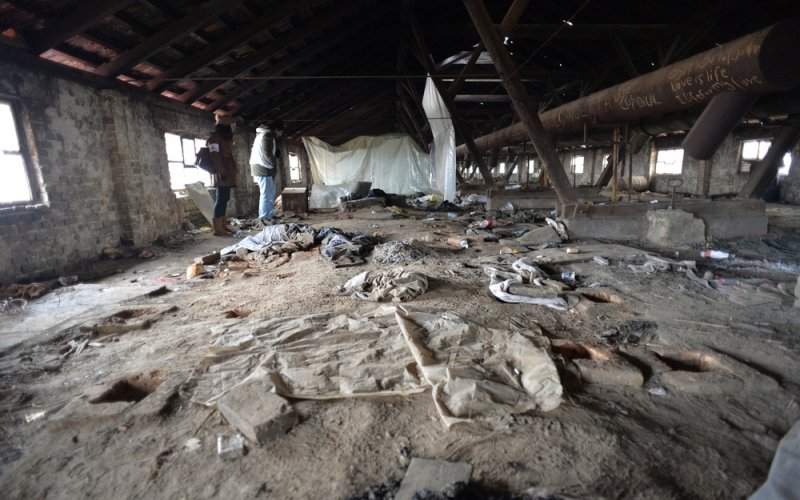
In Subotica, hundreds of asylum-seekers and migrants used to stay in an old brick factory, but the police often raided the building. “They came four days ago and took everyone who didn't manage to escape,” said one person. MSF ran a mobile clinic there to help those with health issues. Photo: Julie Remy
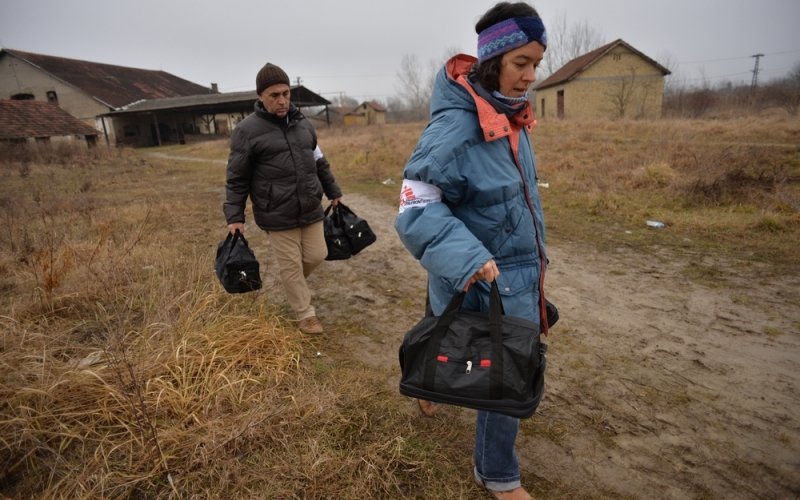
Near the abandoned factory, MSF teams distribute “transit kits” to asylum-seekers and migrants camping in the “jungle” of Subotica. Each kit contains soups, energy bars, tea, coffee, and sugar, as well as a mug, matches, a lamp, a rain poncho, razors, soap, a comb, a toothbrush, and a towel. Photo: Julie Remy
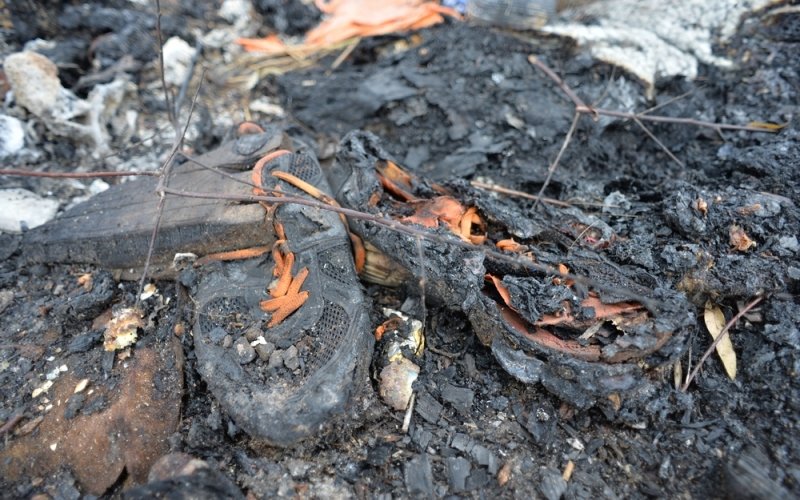
A pair of shoes left in the “jungle.” “The police burnt everything," says a 17-year-old Afghan refugee. "They asked us to remove our shoes [and] our jackets and burnt all our belongings.” Photo: Julie Remy
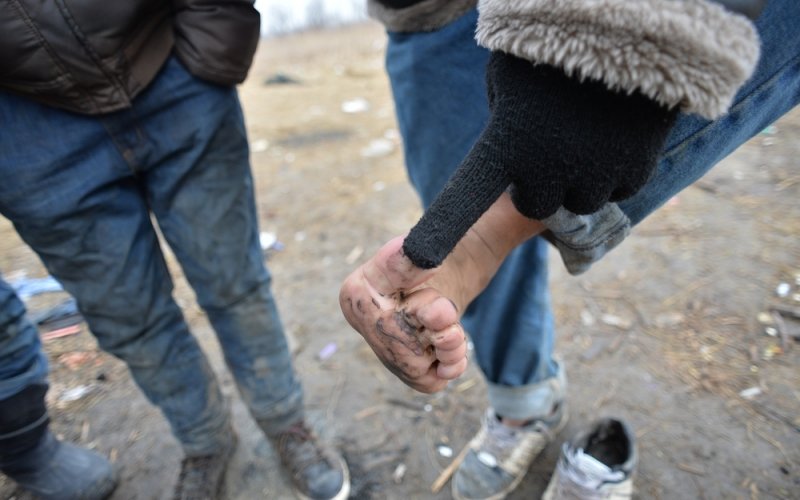
One 37-year-old Afghan man made his entire journey without socks. "From walking all that time without socks I ended up having huge blisters," he says. "It's OK now, but look, we can still see some of them." Photo: Julie Remy
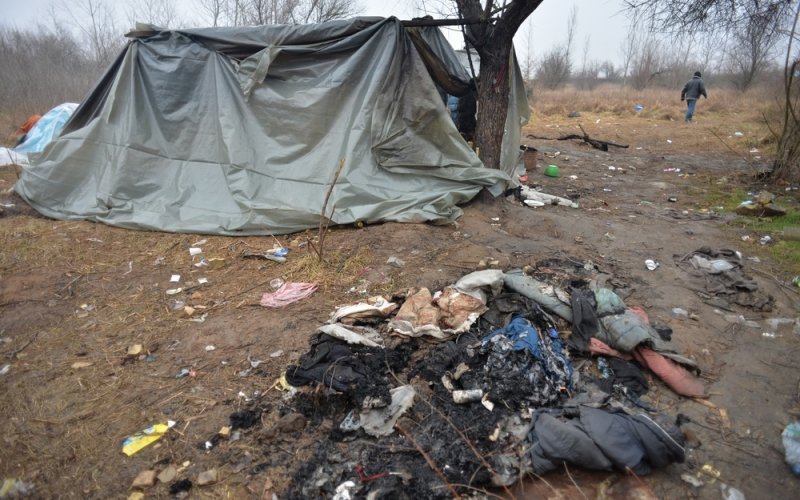
The remains of more burnt belongings, including jackets and blankets, taken from refugees and migrants. Photo: Julie Remy
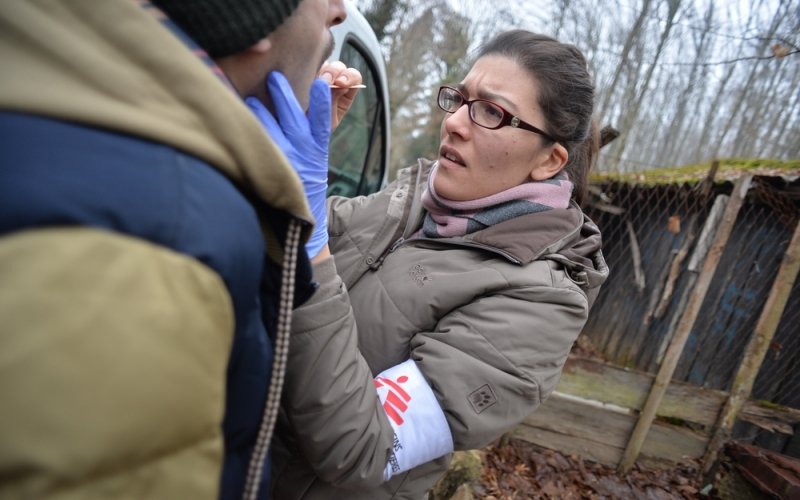
An MSF doctor examines a young Syrian man recently arrived in Serbia. Photo: Julie Remy
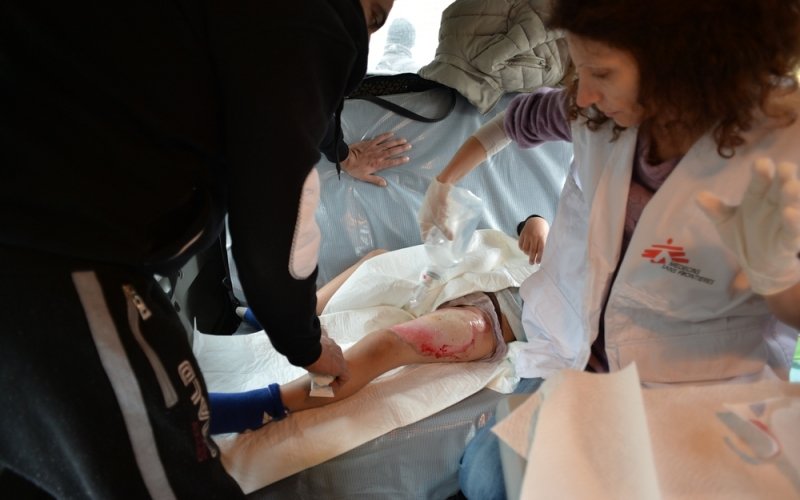
An MSF nurse tends to a six-year-old Syrian boy who was burned by a broken shower in a Macedonian detention center six days ago. Photo: Julie Remy
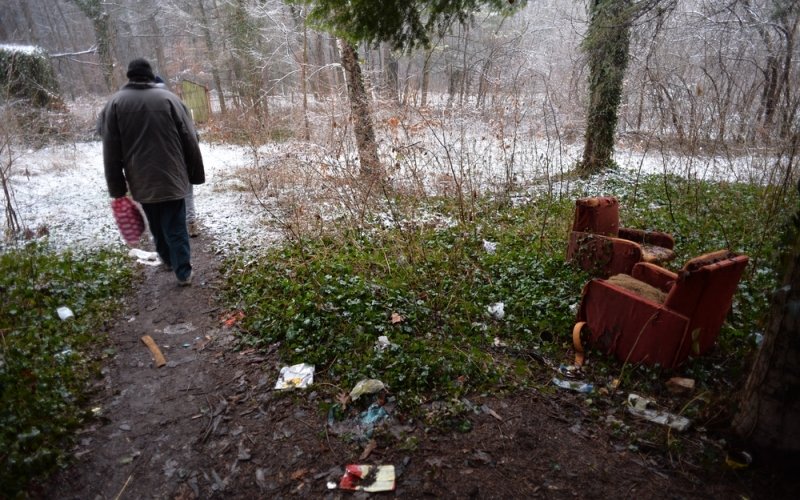
“It is inhumane!" says a Togolese migrant. "I thought Europeans were good people. Now what am I supposed to think of them when they treat us worse than criminals?” Photo: Julie Remy
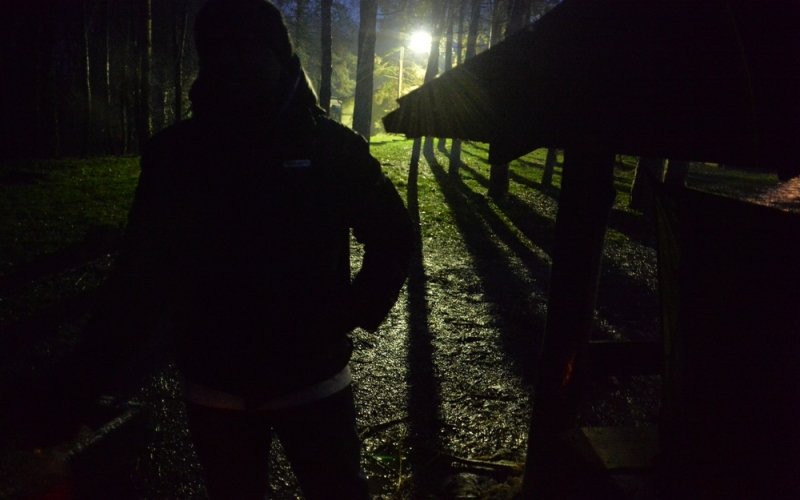
A Togolese man and others are denied access to the Bogovadja asylum center. “It’s been four days, we are freezing outside,” he says with tears in his eyes. "We did all that is required . . . but here again they refused to give us the papers." Photo: Julie Remy
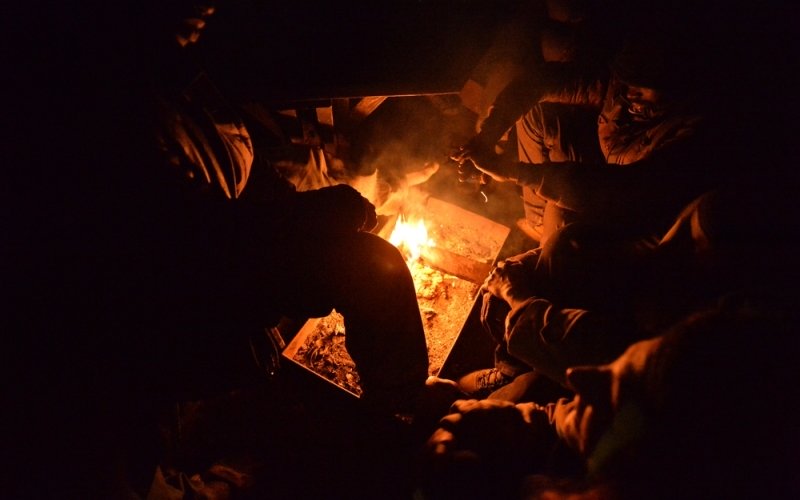
“I can't keep going like this without sleeping," says a Togolese migrant. "I am too cold to sleep, I don't even have a blanket. I have to stay around the fire outside to stay alive. I am beyond tired. Why are we treated like criminals?" Photo: Julie Remy
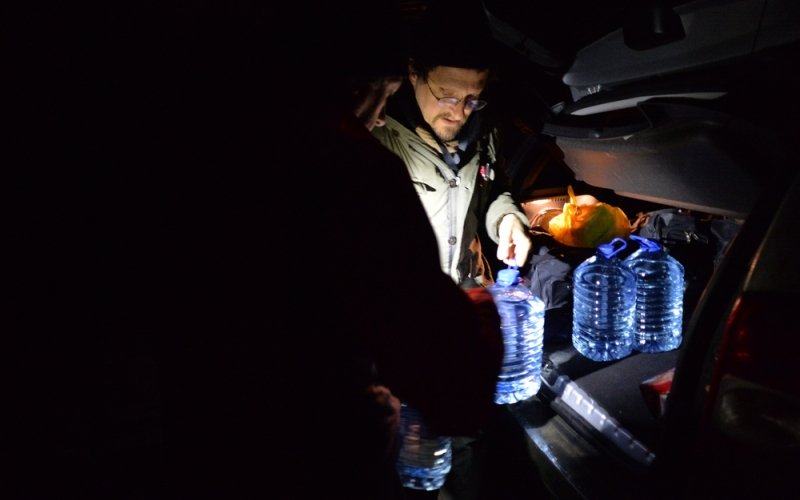
MSF workers leave food and water in an abandoned house for asylum-seekers and migrants who were refused access to the asylum center in Bogovadja. Photo: Julie Remy
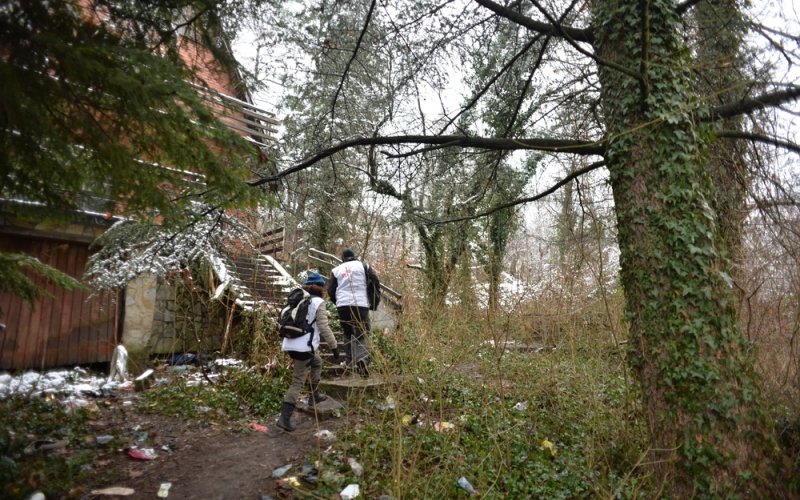
MSF workers check an abandoned house where asylum-seekers and migrants took refuge for the night when they were denied access to the asylum center in Bogovadja. Photo: Julie Remy
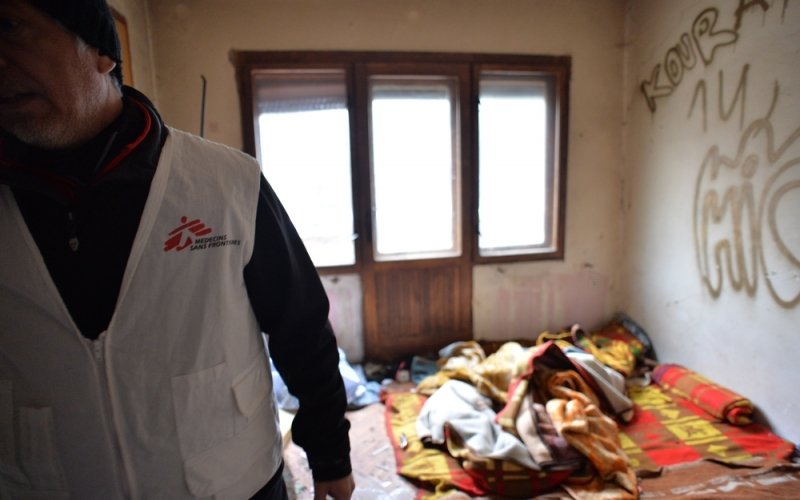
This abandoned house is missing many windows and has no heating, running water, toilet, or electricity. Blankets have been left behind by asylum-seekers and refugees who slept here before. Photo: Julie Remy
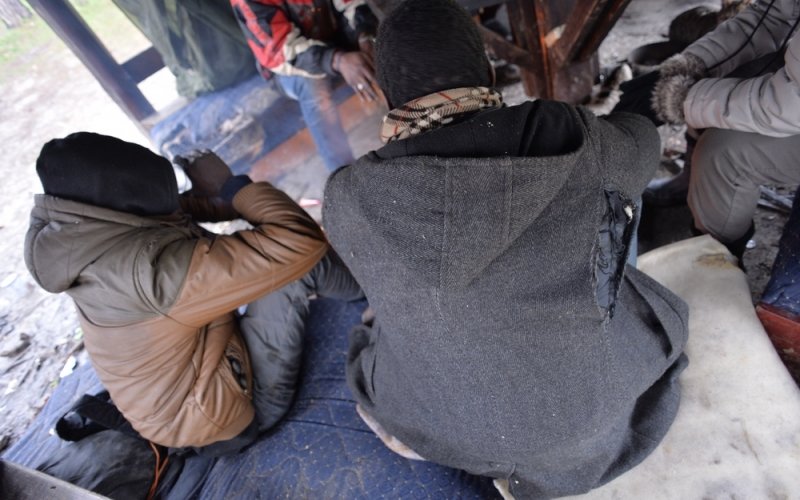
A group of men from Togo, Gambia, Mali, and Ivory Coast try to stay warm around a small campfire near the Bogovadja asylum center, where they were denied access. Ten men in all, they have just two sleeping bags between them. Photo: MSF
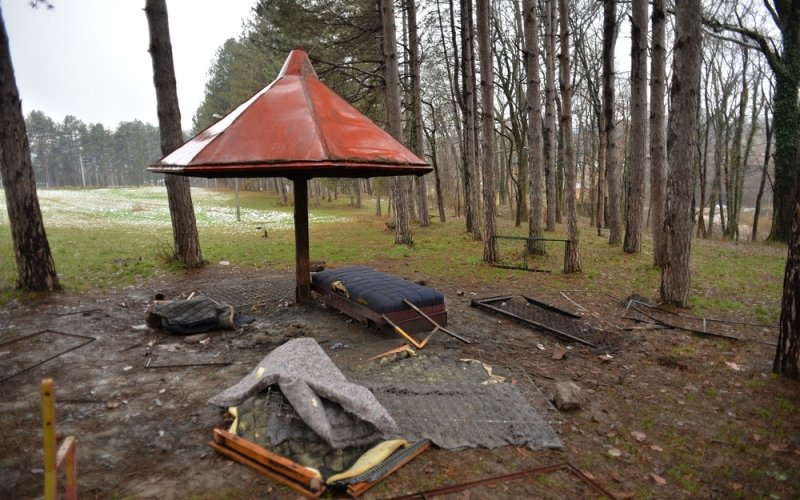
“Some people were sleeping here last night," says a Malian migrant. "They left very early in the morning as they could not sleep. Last night was very cold, and it was snowing all night." Photo: MSF
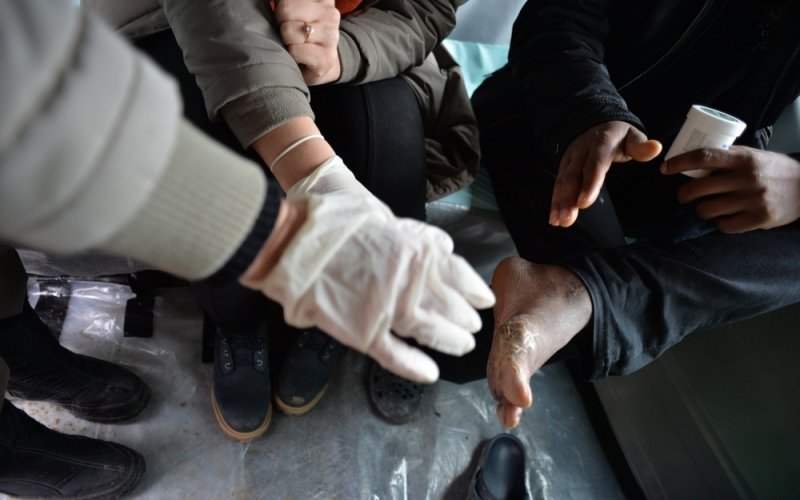
MSF doctors examine a diabetic Somali man's foot. He's had trouble controlling his blood sugar levels due to the lack of proper insulin medication on his precarious journey. Photo: MSF
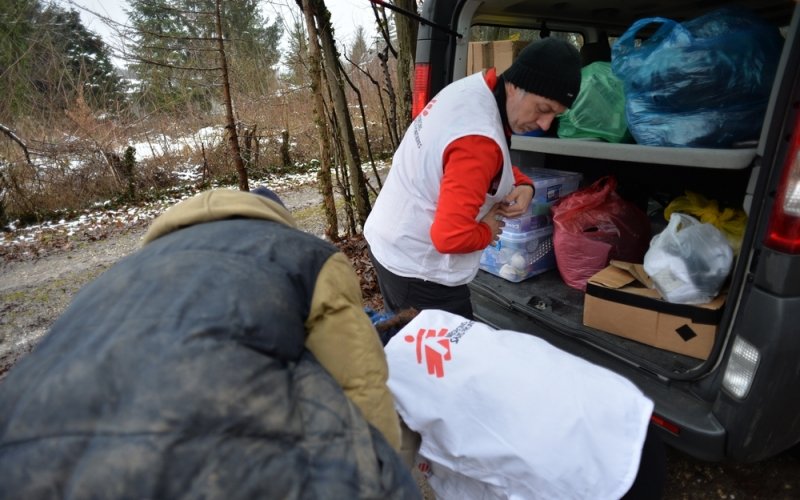
During a mobile clinic consultation in Bogovadja, MSF workers provide new shoes, socks, underwear, and a “transit kit” to a feverish Somali man. Despite the subzero temperatures, he will have to sleep outside tonight. Photo: MSF
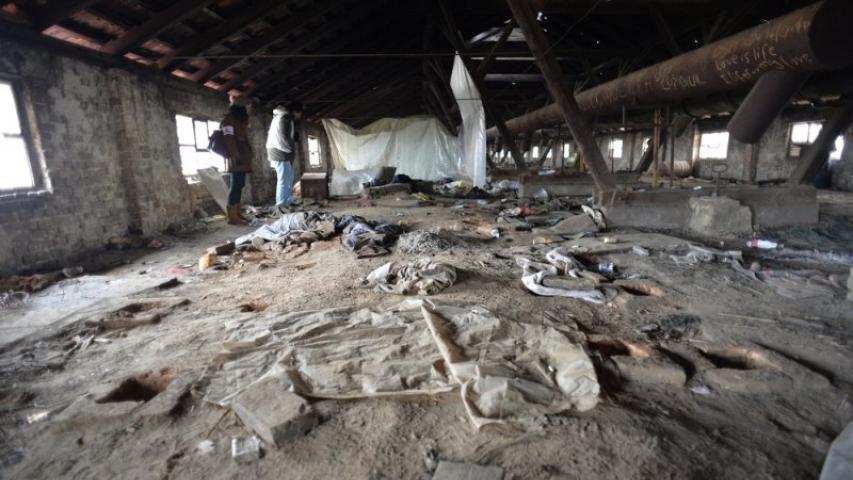
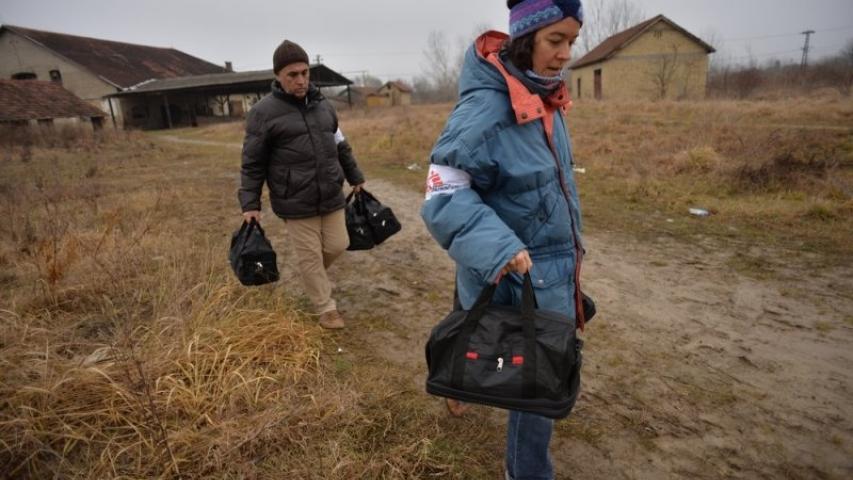
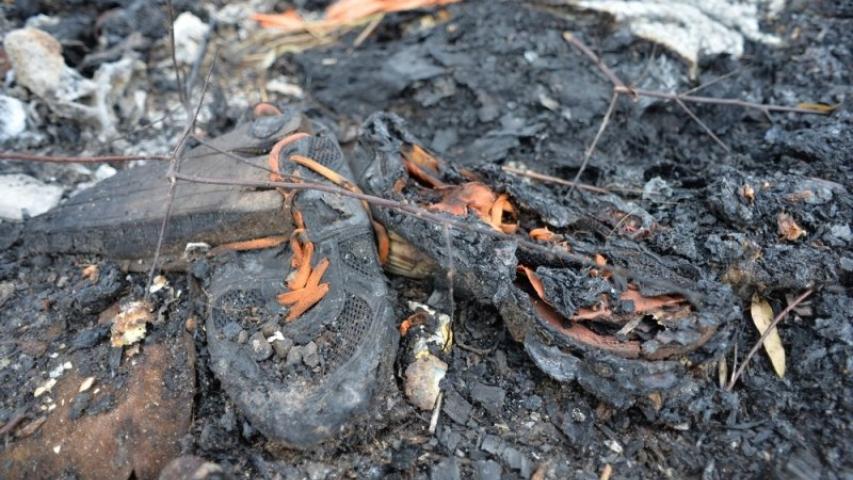
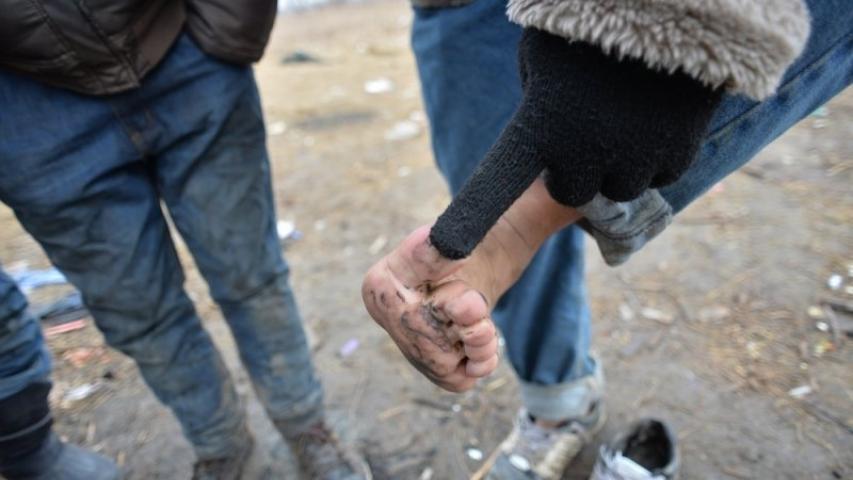
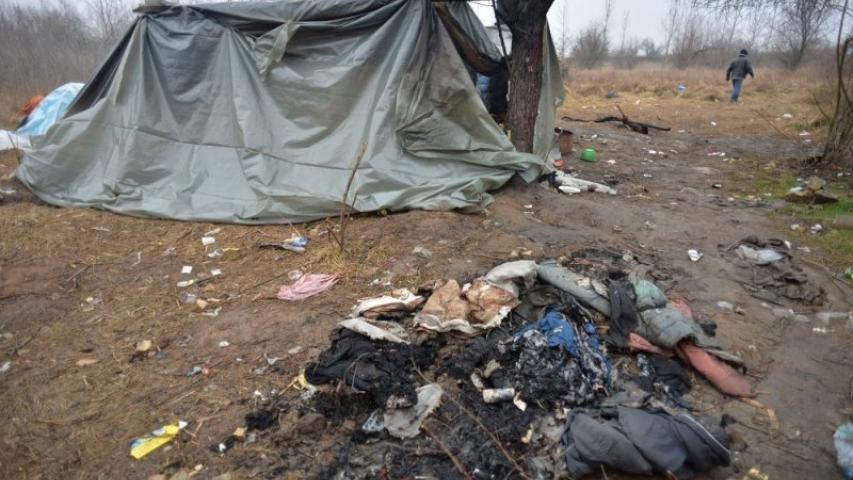
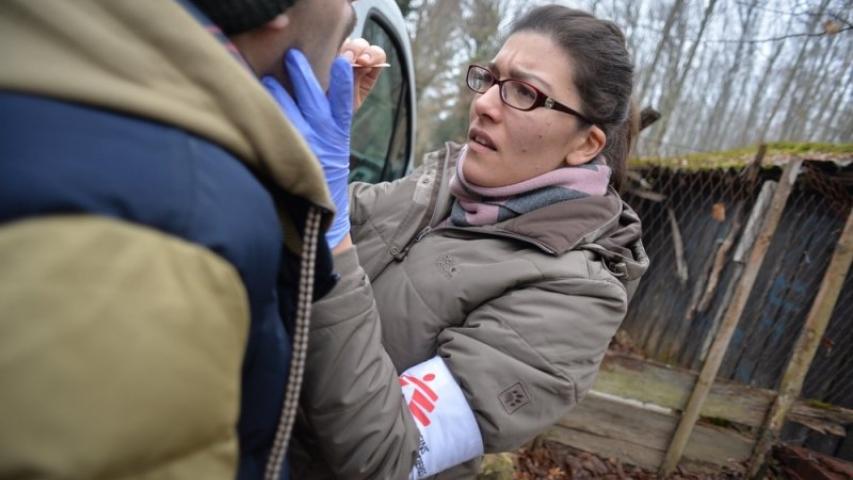
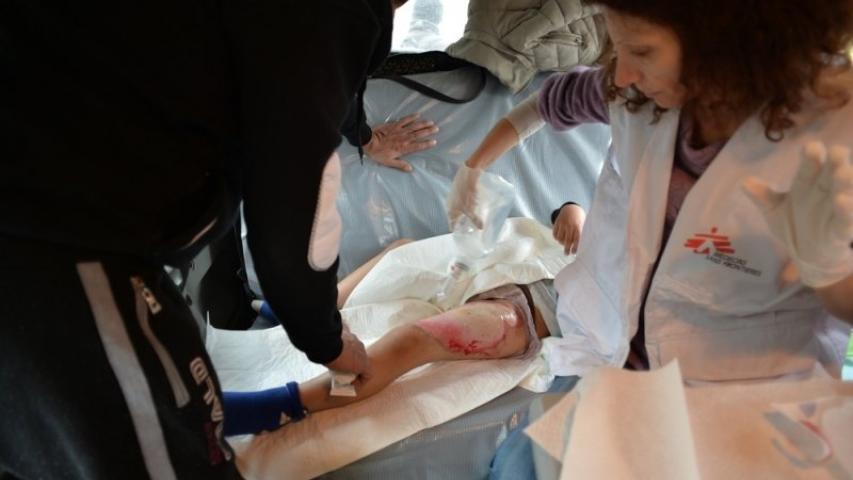
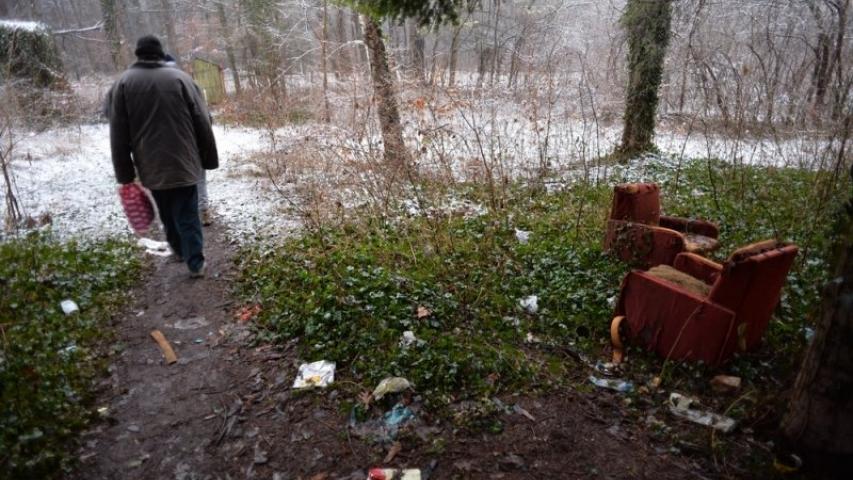
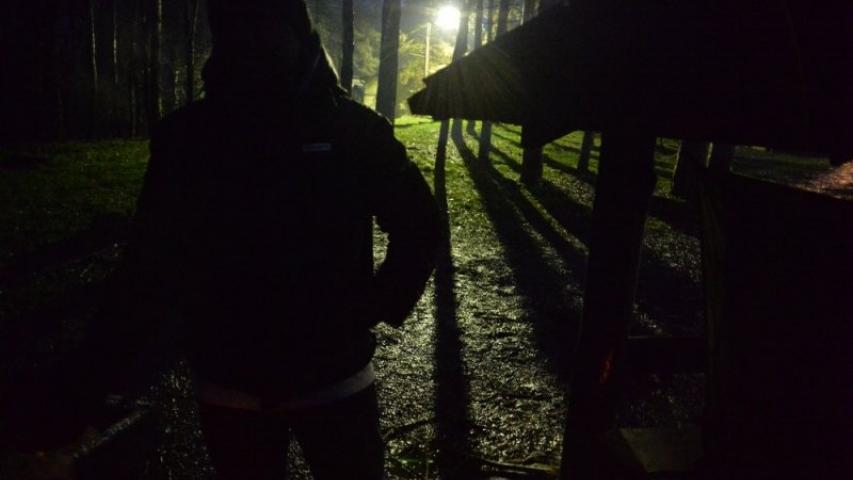
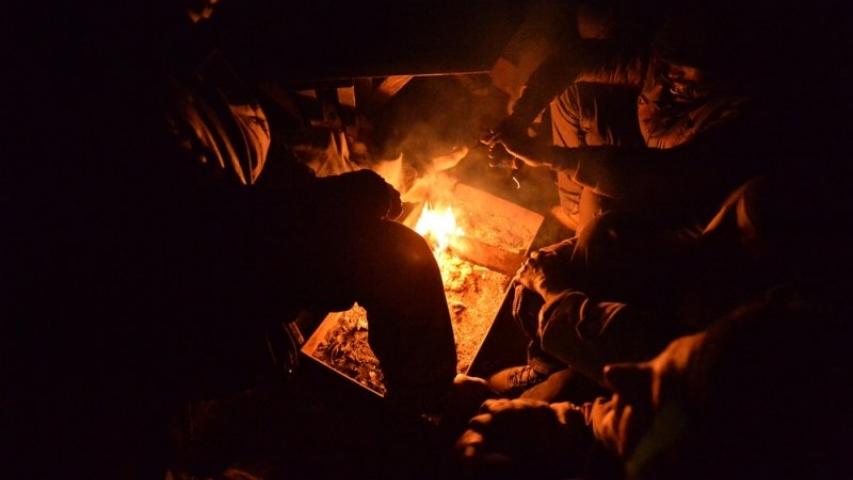
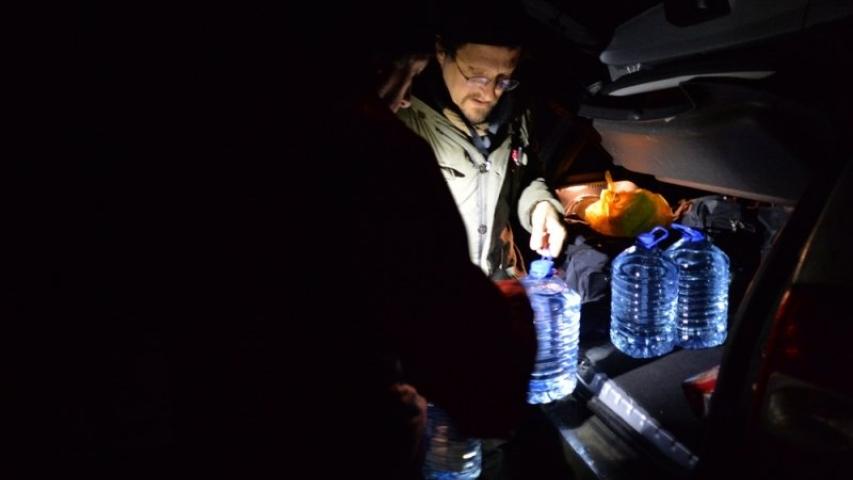
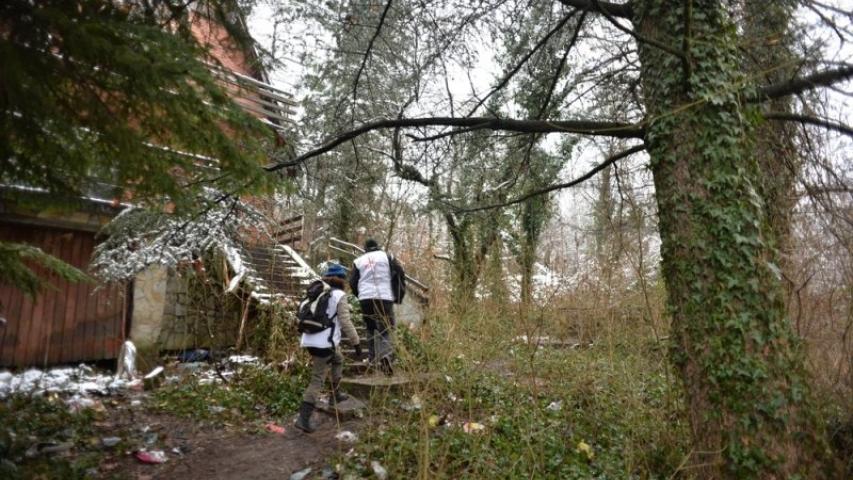
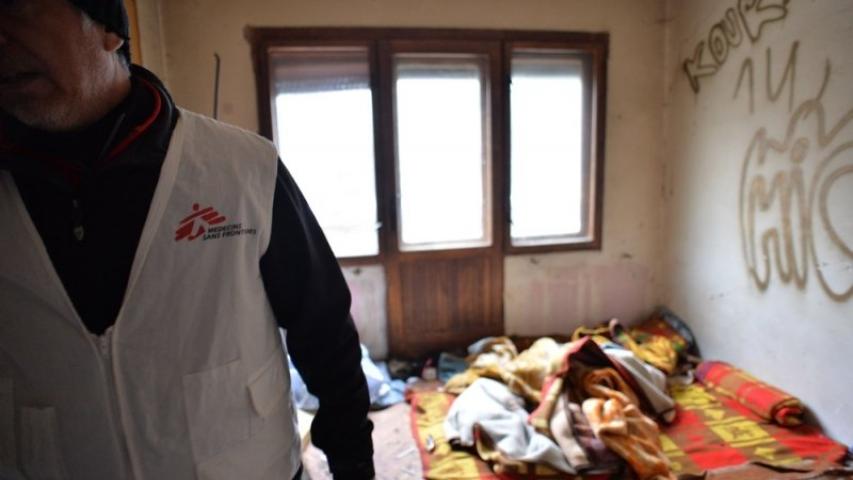
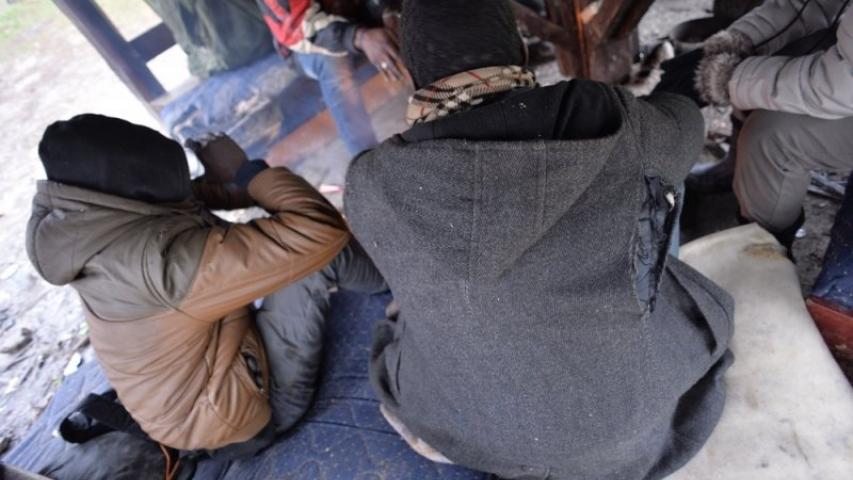
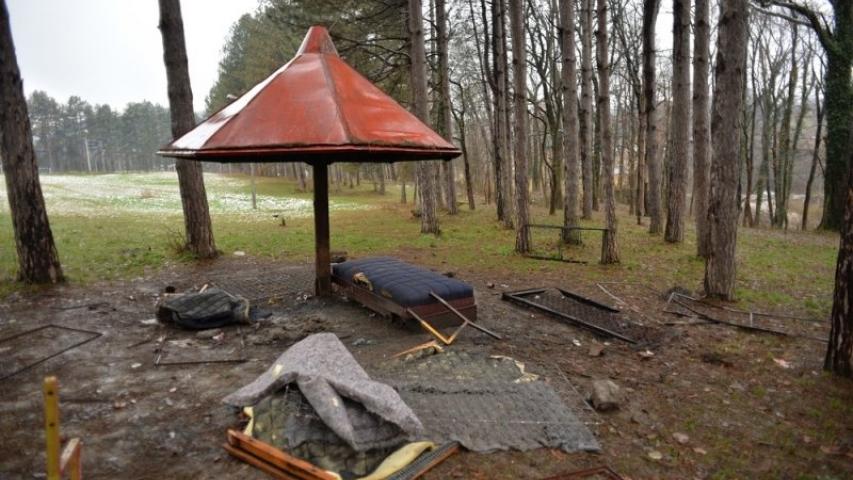
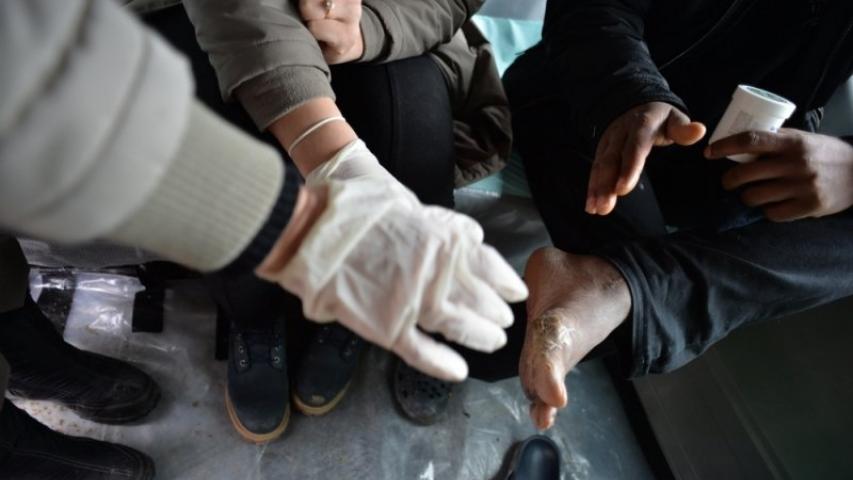
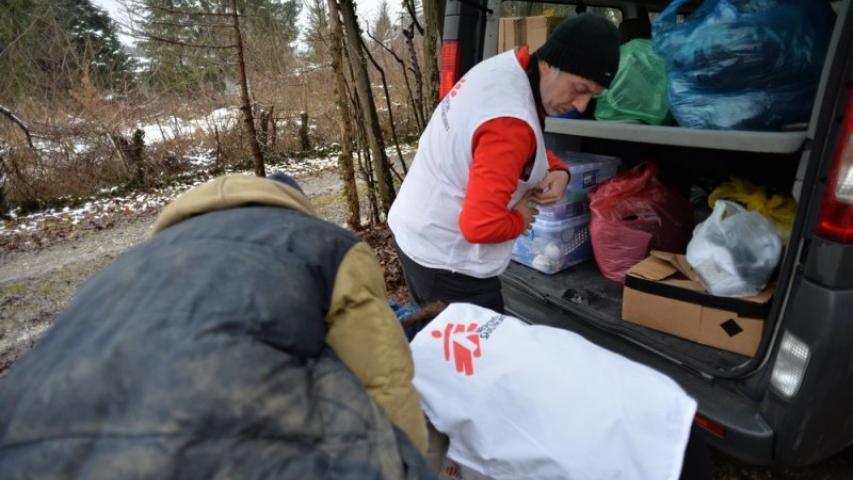
On their journey through the Balkans to seek safety and assistance in Europe, many asylum-seekers, refugees, and migrants become stranded in forests and abandoned buildings in Serbia.
They struggle through the cold weather without sufficient food or shelter, and have limited access to basic medical care. What's more, they are often exposed to criminal networks, physical attacks, and robberies.
The European Union (EU) asylum system has so far failed to offer them aid and protection upon arrival.